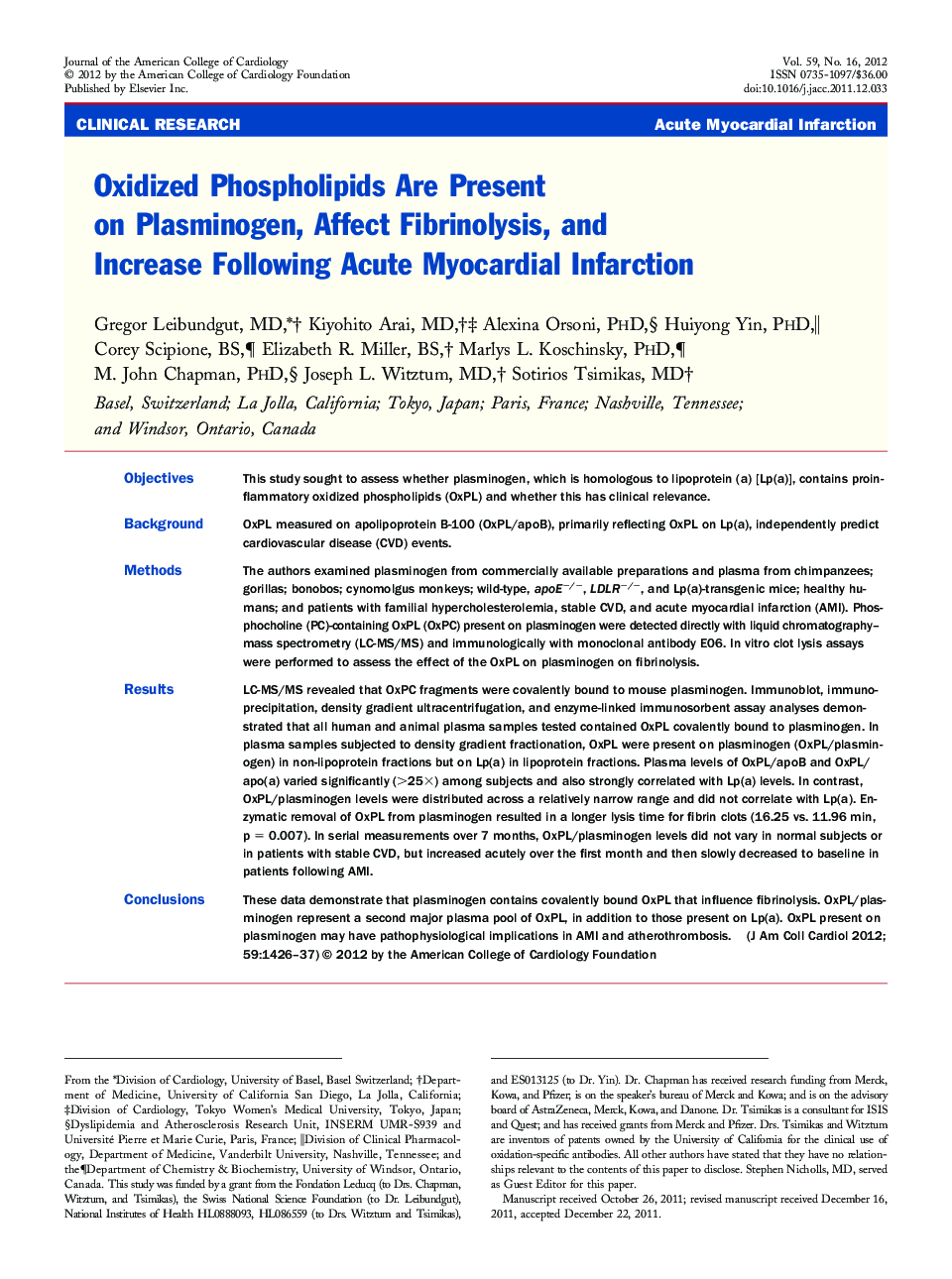| کد مقاله | کد نشریه | سال انتشار | مقاله انگلیسی | نسخه تمام متن |
|---|---|---|---|---|
| 2946960 | 1577215 | 2012 | 12 صفحه PDF | دانلود رایگان |

ObjectivesThis study sought to assess whether plasminogen, which is homologous to lipoprotein (a) [Lp(a)], contains proinflammatory oxidized phospholipids (OxPL) and whether this has clinical relevance.BackgroundOxPL measured on apolipoprotein B-100 (OxPL/apoB), primarily reflecting OxPL on Lp(a), independently predict cardiovascular disease (CVD) events.MethodsThe authors examined plasminogen from commercially available preparations and plasma from chimpanzees; gorillas; bonobos; cynomolgus monkeys; wild-type, apoE−/−, LDLR−/−, and Lp(a)-transgenic mice; healthy humans; and patients with familial hypercholesterolemia, stable CVD, and acute myocardial infarction (AMI). Phosphocholine (PC)-containing OxPL (OxPC) present on plasminogen were detected directly with liquid chromatography–mass spectrometry (LC-MS/MS) and immunologically with monoclonal antibody E06. In vitro clot lysis assays were performed to assess the effect of the OxPL on plasminogen on fibrinolysis.ResultsLC-MS/MS revealed that OxPC fragments were covalently bound to mouse plasminogen. Immunoblot, immunoprecipitation, density gradient ultracentrifugation, and enzyme-linked immunosorbent assay analyses demonstrated that all human and animal plasma samples tested contained OxPL covalently bound to plasminogen. In plasma samples subjected to density gradient fractionation, OxPL were present on plasminogen (OxPL/plasminogen) in non-lipoprotein fractions but on Lp(a) in lipoprotein fractions. Plasma levels of OxPL/apoB and OxPL/apo(a) varied significantly (>25×) among subjects and also strongly correlated with Lp(a) levels. In contrast, OxPL/plasminogen levels were distributed across a relatively narrow range and did not correlate with Lp(a). Enzymatic removal of OxPL from plasminogen resulted in a longer lysis time for fibrin clots (16.25 vs. 11.96 min, p = 0.007). In serial measurements over 7 months, OxPL/plasminogen levels did not vary in normal subjects or in patients with stable CVD, but increased acutely over the first month and then slowly decreased to baseline in patients following AMI.ConclusionsThese data demonstrate that plasminogen contains covalently bound OxPL that influence fibrinolysis. OxPL/plasminogen represent a second major plasma pool of OxPL, in addition to those present on Lp(a). OxPL present on plasminogen may have pathophysiological implications in AMI and atherothrombosis.
Journal: Journal of the American College of Cardiology - Volume 59, Issue 16, 17 April 2012, Pages 1426–1437